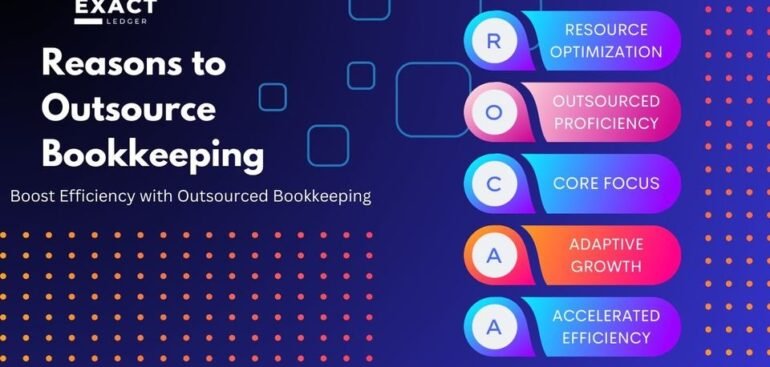Key Developments in Taxation for 2024
The taxation of individuals and business entities 2024, will undergo various changes, affecting income, business profits, and personal finances. Governments around the world routinely adjust tax policies to reflect economic trends and political priorities. Taxation of Individuals and Business Entities 2024, stay informed about these changes to ensure compliance and optimize your tax position. This article explores the key developments that will impact individuals and business entities in the coming year.
Income Tax Adjustments
One of the most significant changes in the taxation of individuals and business entities 2024 will likely be adjustments to income tax rates and brackets. Governments often review these rates annually, which can influence how much tax individuals must pay on their income. For business entities, changes in corporate tax rates could have implications for profitability and growth strategies. It’s crucial to understand how these adjustments will affect your tax liabilities and to plan accordingly.
Deductions and Credits in the Taxation of Individuals and Business Entities 2024
Alongside changes in tax rates, the taxation of individuals and business entities 2024 will also see variations in standard deductions and tax credits. These deductions reduce the amount of taxable income, providing a form of tax relief. Credits, on the other hand, directly reduce the tax owed. Understanding these changes is crucial for individuals seeking to maximize their tax benefits. Business entities may also find new credits that incentivize certain activities, like sustainability initiatives or research and development.
Corporate Tax Revisions
For business entities, the taxation of individuals and business entities 2024 will be shaped by revisions to corporate tax laws. Governments might adjust corporate tax rates, impacting business profitability and investment decisions. These changes in taxation could also affect employment rates, business expansion, and overall economic growth. Business owners should stay informed about these shifts to make strategic decisions that align with the new tax environment.
International Tax Considerations
As businesses expand globally, the international component of the taxation of individuals and business entities 2024 becomes increasingly significant. In 2024, multinational corporations must consider changes in international tax regulations, such as the proposed global minimum tax rate. These international tax agreements can impact where companies choose to base their operations and how they report their income. Staying abreast of these developments is crucial for businesses operating across borders.
Compliance and Reporting
Tax compliance is a critical aspect of the taxation of individuals and business entities 2024. Governments are increasingly sophisticated in tracking income and business operations, leading to heightened scrutiny. For individuals, compliance means accurately reporting income and deductions to avoid penalties. Business entities must ensure they comply with all corporate tax laws, which can involve complex reporting requirements. Ignoring compliance can lead to audits, fines, or other legal consequences.
Tax Planning Strategies
Given the changes in the taxation of individuals and business entities 2024, effective tax planning is more important than ever. Individuals and business entities should explore strategies to minimize tax liability while adhering to the law. Tax planning can include taking advantage of deductions, credits, and other tax-saving measures. Consulting with tax professionals can provide valuable insights into navigating these changes.
Preparing for the 2024 Tax Season
Preparation is crucial as individuals and business entities approach the taxation of individuals and business entities 2024. Understanding the taxation trends for 2024 can help taxpayers make informed decisions and avoid surprises. Staying updated on new tax regulations and seeking professional advice can lead to a smoother tax season. By planning ahead, taxpayers can mitigate risks and take advantage of new opportunities in the changing tax landscape.
Conclusion
As you prepare for the Taxation of Individuals and Business Entities 2024, understanding these developments can help you make informed decisions. Consider consulting with tax professionals for personalized advice and guidance. By staying proactive and informed, individuals and business entities can better manage their tax obligations and identify opportunities in this changing tax landscape.
In 2024, tax compliance and international tax considerations are likely to play an increasingly significant role. Individuals and business entities must ensure they meet all reporting requirements to avoid penalties or audits. Proper tax planning strategies from Exact Ledgers can help taxpayers navigate this complex environment, allowing them to optimize their financial position while adhering to the law.
To conclude, the taxation of individuals and business entities 2024, involves numerous changes that require attention and careful planning. The adjustments in income tax rates, standard deductions, tax credits, and corporate taxes will impact the financial landscape for many people and businesses. As governments continue to refine tax policies to meet economic needs and political goals, staying informed becomes crucial.
FAQs
What are the most significant changes expected in the taxation of individuals and business entities 2024?
Taxation of Individuals and Business Entities 2024, changes in income tax rates and brackets, standard deductions, and tax credits are among the most significant developments for individuals. For business entities, adjustments to corporate tax rates and new international tax regulations may impact profitability and compliance requirements. It’s crucial to stay informed about these changes to plan effectively.
How will standard deductions and tax credits change in 2024?
Standard deductions and tax credits are subject to annual revisions. In 2024, there might be changes to these deductions and credits, affecting individual tax liabilities. Tax credits could also be introduced for specific activities, like sustainability or research. Understanding these changes helps individuals maximize their tax benefits.
How might changes in corporate tax rates affect business entities in 2024?
Changes in corporate tax rates can impact business profitability, investment decisions, and growth strategies. If corporate tax rates increase, business entities might face higher tax liabilities, affecting their bottom line. Conversely, lower rates could encourage business expansion and hiring. Business owners should monitor these changes to align their strategies with the new tax environment.
What are the international tax considerations for business entities in 2024?
Business entities operating internationally must consider global tax agreements and regulations. In 2024, the proposed global minimum tax rate may affect where multinational corporations base their operations and how they report income. Staying updated on international tax developments is crucial for businesses with global operations.
What does compliance mean for individuals and business entities in 2024?
Compliance involves accurately reporting income, deductions, and other financial information to tax authorities. In 2024, increased scrutiny and sophisticated tracking tools could lead to heightened enforcement. Individuals and business entities must ensure they meet all compliance requirements to avoid penalties, audits, or legal issues.
What tax planning strategies are recommended for 2024?
Effective tax planning involves exploring deductions, credits, and other tax-saving measures to minimize liability. In 2024, individuals and business entities should consider consulting with tax professionals for personalized advice. Planning ahead helps taxpayers navigate changes in tax regulations and make informed financial decisions.


